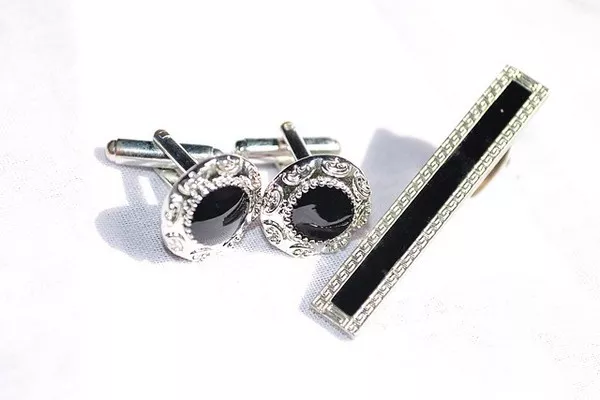In the world of precious metals investing, silver and gold have long held a revered status. Both metals are valued for their intrinsic worth, historical significance, and diverse applications across industries. However, a peculiar aspect of purchasing these metals often raises questions among investors: why is there Value Added Tax (VAT) applied to silver but not to gold? This article aims to delve into the underlying reasons behind this divergence, exploring the economic, historical, and legislative factors contributing to this phenomenon.
Distinction in Industrial Applications
Silver’s Ubiquitous Industrial Use
Silver boasts a plethora of industrial applications, ranging from electronics and photography to medical equipment and solar panels. Its conductivity, malleability, and reflectivity make it indispensable in various sectors, leading to significant demand. Unlike gold, which primarily serves as a store of value and a symbol of wealth, silver’s extensive utilization in manufacturing processes exposes it to VAT due to its classification as a consumable commodity rather than a purely monetary asset.
Gold’s Limited Industrial Utility
In contrast, gold’s industrial usage is comparatively limited. While it finds application in electronics, dentistry, and certain niche sectors, its primary role remains that of a monetary metal and a hedge against inflation. The relatively lower demand for gold in industrial processes contributes to its exemption from VAT in many jurisdictions, as it is primarily regarded as an investment vehicle rather than a consumable material.
Historical Context and Monetary Functions
Gold as a Historical Standard
Throughout history, gold has served as the cornerstone of monetary systems worldwide. Its intrinsic value, scarcity, and durability made it the preferred medium of exchange and store of value across civilizations. Even in contemporary times, central banks and investors alike hoard gold as a hedge against economic uncertainty and currency devaluation. This historical precedence and its entrenched status as a monetary asset contribute to its exemption from VAT, as it is predominantly treated as a financial instrument rather than a commodity subject to consumption taxes.
Silver’s Demotion from Monetary Status
While silver also played a significant role in historical monetary systems, its prominence gradually diminished over the centuries. With the abandonment of the silver standard and the rise of fiat currencies, silver’s monetary functions waned, relegating it to the realm of industrial consumption and speculative investment. This transition from a monetary metal to an industrial commodity laid the groundwork for its taxation under VAT regimes, as it became viewed through the lens of consumption rather than wealth preservation.
Regulatory Framework and Taxation Policies
VAT Treatment of Precious Metals
The VAT treatment of precious metals varies from one jurisdiction to another, influenced by local regulations, tax policies, and economic considerations. In many countries, investment-grade gold bullion and coins are exempt from VAT, reflecting their status as financial assets. Conversely, silver, along with other industrial metals, typically incurs VAT due to its widespread industrial use and perceived consumable nature. However, certain jurisdictions may offer partial exemptions or reduced rates for silver products used in investment vehicles, such as silver coins or bars meeting specific purity standards.
Legislative Interpretations and Definitions
The classification of precious metals for VAT purposes often hinges on legislative interpretations and definitions outlined in tax codes. While gold is frequently classified as a monetary asset or financial instrument, silver may be categorized as a commodity subject to consumption taxes. This delineation stems from the inherent differences in their roles within the economy, with gold primarily serving as a wealth preserver and silver fulfilling a dual role as an industrial input and investment vehicle.
Market Dynamics and Price Volatility
Silver’s Price Volatility
The silver market is renowned for its volatility, driven by factors such as industrial demand, speculative trading, and macroeconomic trends. Fluctuations in silver prices can be substantial, making it a riskier investment compared to gold. This heightened price volatility may influence regulatory decisions regarding VAT treatment, as authorities seek to mitigate potential market distortions and revenue fluctuations arising from silver’s speculative nature.
Gold’s Stability and Safe-Haven Appeal
Gold, on the other hand, is prized for its stability and safe-haven appeal during times of economic uncertainty. Its relatively lower price volatility and consistent demand as a store of value contribute to its preferential treatment under VAT regimes. Governments and central banks recognize the importance of maintaining investor confidence in gold as a stable asset, hence refraining from imposing consumption taxes that could deter investment and undermine its status as a financial safe haven.
Conclusion
In conclusion, the disparate VAT treatment of silver and gold stems from a combination of factors, including their industrial applications, historical roles, regulatory frameworks, and market dynamics. While silver’s extensive industrial use subjects it to VAT as a consumable commodity, gold’s status as a monetary metal and a store of value grants it exemption from such taxation in many jurisdictions. Understanding these underlying reasons is crucial for investors seeking to navigate the intricacies of the precious metals market and make informed decisions regarding their investment portfolios.


